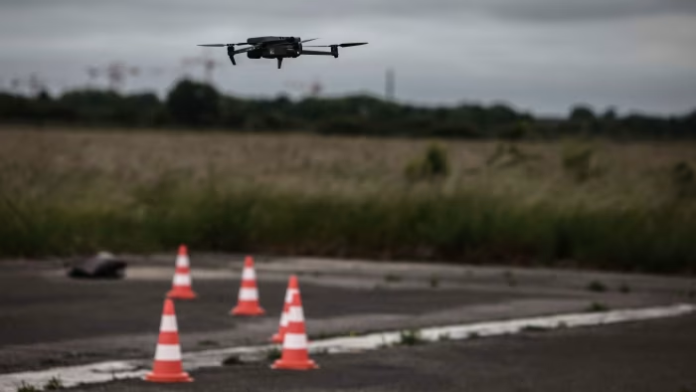The US Commerce Department initiated “Section 232” national security investigations into imported drones and polysilicon, a critical material for solar panels and semiconductors.
Opened on 1 July but only disclosed on Monday, the probes could justify sweeping tariffs on both categories, intensifying America’s trade scrutiny of strategic supply chains.
China dominates the US commercial drone market, with DJI alone accounting for over half of all sales. The Biden administration previously flagged risks in January 2025, proposing rules to restrict or ban Chinese drones over espionage and data vulnerabilities.
This followed December 2024 legislation signed by Biden that threatened to block new DJI and Autel models from the US market.
The current probe will assess supply chain concentration, domestic production gaps, and the impact of foreign subsidies. Michael Robbins, CEO of the Association for Uncrewed Vehicle Systems International (AUVSI), condemned market distortion.
The dependence on adversary-manufactured systems that are dumped in the US below market value due to foreign government subsidies has also stifled the growth of a secure American drone industrial base, undercutting innovation, and forcing US manufacturers to compete on an uneven playing field.
Polysilicon, essential for renewable energy and tech hardware, now joins drones under the microscope. The investigation aligns with President Donald Trump’s recent executive order to bolster domestic drone manufacturing and a pattern of “Section 232” actions targeting imports, from commercial aircraft and semiconductors to pharmaceuticals, deemed vital to national security.
The Commerce Department’s findings could reshape tariffs and accelerate efforts to onshore production of critical technologies, reflecting Washington’s hardening stance on economic sovereignty amidst geopolitical rivalry.
